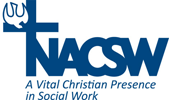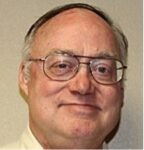Preconvention Institute Sessions
Thursday, October 10, 2024
FULL day 9:00 am-4:30 pm (CT) OR
HALF DAY 8:30 am- 12:15pm and/or 1:15 – 5:00 pm (CT)
There are THREE options –
- One full day session for $120.00 and 6 CEs
- One or both half-day session for $70.00 and 3.5 CEs each (up to 7 total CEs)
Register online using the convention registration link.
Full-Day Session Option
Thursday, October 10, 2024
9am- 4:30 pm Central Time (6.0 CEs)
James W. Ellor, Ph.D., LCSW, DCSW
Social Work with First Responders at Times of Trauma with Psychological First Aid Certification
Each day, all around the world, first responders respond to a wide variety of traumas that reflect the human condition. Primary responders include Police, Firefighters, Emergency Medical Services (EMS) and dispatchers. Each of these groups have a diversity of sub-groups or related response teams. Still further behind these primary responders are the various volunteer groups who support each of these primary functions with force enhancement teams. In any given community this reflects hundreds of people in a unique system of persons trained to be present at the times of a major trauma or disaster. With proper training, most incidents are handled by these professionals with little or no personal impact on the responder. However, from time to time, out of nowhere, an event will touch these important community servants that is overwhelming to even their training. Sometimes these events will interact with some other even(s) that are more personal and sometimes the event itself is so horrific that it would traumatize anyone involved.
In this workshop we will begin to talk about the context of first responders. Who they are, what the parameters are of their response, and how the various volunteer groups support them. Next, we will discuss the context and offer examples of response approaches when a traumatized first responder is present in your agency. Finally, the group will talk about way in the future to begin to build resilience for responders to help reduce the impact of the various contexts that first responders encounter.
Learning Objectives:
As the result of this event, participants will be able to:
- Identify both micro and macro contexts of the local first response system.
- Discuss the impact of stress on anyone found in a trauma situation
- Dialogue about the various approaches to support persons in trauma
- Implement a system for building up resilience in support of first responders
Bio
Jim Ellor is the Dorothy Barfield Kronzer Endowed Professor in Family Studies, emeritus in the School of Social Work at Baylor University. Jim joined the Baylor faculty in August of 2004. He is an ordained minister in the Presbyterian Church, USA and on the pastoral staff of First Presbyterian Church of Waco, Texas. Jim has worked as a social worker for over 46 years. He has taught social work and gerontology for the past 40 years at the University of Chicago, National – Louis University and Baylor. He was one of the founding Directors of the Center for Aging Religion and Spirituality housed at Luther Seminary in St. Paul, Minnesota. He also served as a part – time on-call chaplain at Edward Hospital, in Naperville, Illinois as well as the chaplain to the Methodist Home of Chicago. He has also been an emergency room social worker at Augustana Hospital. Jim teaches Gerontology, medical and mental health social work at Baylor University. He is also the founder of the Psycho-Social Spiritual Intervention Team for the McLennan County Disaster System which is now a part of FEMA’s Medical Reserve Corp. where he trains the various teams of psycho-social crisis teams. He is also a National Response Team member of Presbyterian Disaster Assistance. He is currently the Vice – Chair of the Texas VOAD and Chaplain for the Heart of Texas Fire Corp. He has lectured in Berlin, Moldova and Canberra, Australia.
Jim has been the General Editor of the Journal of Religion Spirituality and Aging for the past 22 volumes. His recent books include James W. Ellor, (2010) (Ed.) Methods in Religion Spirituality and Aging on Routledge Press. Other recent books include Netting, F. E., & Ellor, J. W. (2004). Faith Based Initiatives and Aging Services, Binghamton: The Haworth Press. McKinlay, Elizabeth, James Ellor, and Stephen Pickard. (2002). Aging, Spirituality and Pastoral Care in the Twenty-First Century: A Multi-National Perspective. Binghamton: The Haworth Press. Ellor, J., McFadden, S., & Sapp, S. (1999). Tenth Anniversary Issue: Aging and Spirituality. San Francisco: American Society on Aging. Ellor, J., McGilliard, J., & Schroeder, P. (1994). Leading a Congregation in the Aging of Aging: Clergy Training Manual. Washington D. C.: National Council on the Aging. Ellor, J., Netting, E., & Thibault, J. (1999). Understanding Religious and Spiritual Aspects of Human Service Practice. Columbia: The University of South Carolina Press. Kimble, M., McFadden, S. H., Ellor, J. W., & Seeber, J. S. (1995). Aging, Religion and Spirituality: A Handbook. Minneapolis: Fortress Press. And Tobin, S.S., Ellor, J. W., Anderson-Ray, S. Enabling the Elderly, Albany: State University of New York Press.
Jim and his wife Janet have two daughters, who are married with 4 grandchildren who keep them very busy.
Bibliography
Croff, H. A., & Parker, C. (2011). I always sit with my back to the wall. Balanced Living Production.
Daniel, T., & Mandell, w. D. (2019). Grief and God: When religion does more harm than healing. First House Press.
Ellor, J. W., & Dolan, S. (2016). Lessons Learned from Disaster: Behavioral Health for Social Workers and Congregations. Social Work and Christianity, 43(1), 108-115.
Frankl, V. (1988). The Will to Meaning. A Meridian Book: New American Library.
Girdano, D. A., Dusek, D. E., & George S. Everly, J. (2009). Controlling Stress and Tension (8th ed.). Pearson.
Horne, P. V., & Riley, J. A. (2014). Left of Bang: How the Marine Corp Combat Hunter Program can Save your Life. Black Irish Entertainment.
Jones, S. (2009). Trauma + Grace: Theology in a Ruptured World. Westminster John Knox.
Matthew S. Stanford, H. K. O., James W. Ellor. (2021). Assessing the usefulness of the God Questionnaire. Psychology of religion and spirituality, 13(1), 46-52.
Peterson, J., & Densley, J. (2021). The Violence Project. Abrams Press.
Pryce, J. G., Pryce, D. H., & Shackelford, K. K. (2012). The Cost of Courage: Combat Stress, Warriors, and Family Survival. Lyceum Books, Inc.
Ramsey, N. J., & Doehring, C. (Eds.). (2019). Military Moral Injury & Spiritual Care. Chalice Press.
Scheffert, A. H. M., & Ellor, J. W. (2022). Addressing the Inequality of Disaster: The role of Faith – based Organizations in Disaster Response and Recovery. Social Work and Christianity, 49(4), 329-348.
Shapiro, F., & Forrest, M. S. (1997). EMDR: Eye Movement Desensitization & Reprocessing Up Dated Edition. Basic Books.
Half day Session Option #1
8:30 am – 12:15 pm Central Time (3.5 CEs)
Madeline Stiers, PhD, LCSW-S
“Reimagining Mental Health Care: Faith Communities as the Foundation for a Continuum of Care”
Abstract:
Nearly a quarter of adults in the United States experience mental illness and a majority of those never receive treatment. The present mental health care system offers no clear point of entry, is difficult to access, lacks providers, and is unaffordable for many. The Hope and Healing Center & Institute endeavors to create a mental health continuum of care in Texas using a network of preexisting gateway organizations such as faith communities, schools, and workplaces to serve as “open doors” to care, each equipped to offer paraprofessional services for those with mental and behavioral health struggles. Through education, practical training, and guided professional support, HHCI trains paraprofessionals through Gateway to Hope University to serve as Certified Mental Health Coaches aimed at improving mental health and spiritual well-being of those in distress.
Learning Objectives:
After completing this training, participants will be able to
- Demonstrate an understanding of HHCI’s agency philosophy and their proposed paraprofessional mental health training program (Gateway to Hope University)
- Identify the role that paraprofessionals can play in mental, behavioral, and spiritual care
- Summarize how mental health care providers and peers can work alongside one another to offer support
References:
Carbonella, A., Navarro-Perez, J. J., & Mestre., M.V. (2020). Challenges and barriers in mental healthcare systems and their impact on the family: A systematic integrative review. Health & Social Care in the Community, 28(5), 1366–1379. https://doi.org/10.1111/hsc.12968
Mental Health Gateway. (2023). Who we work with. https://mentalhealthgateway.org/who-we-are/who-we-work-with/
NAMI. (2023). Mental health by numbers. https://www.nami.org/mhstats
Rogers, E.B., & Stanford, M. S. (2015). A church-based peer-led group intervention for mental illness. Mental Health, Religion & Culture, 18(6), 470–481. https://doi.org/10.1080/13674676.2015.1077560
Smit, D., Miguel, C., Vrijsen, J. N., Groeneweg, B., Spijker, J., & Cuijpers, P. (2022). The effectiveness of peer support for individuals with mental illness: Systematic review and meta-analysis. Psychological Medicine, 1–10. https://doi.org/10.1017/S0033291722002422
Stanford, M.S., Stiers, M.R., & Soileau, K. (2023). Integrating religion and spirituality into psychiatric outpatient treatment in the United States. Journal of Religion and Health, 62(4), 2258–2271. https://doi-org.ezproxy.baylor.edu/10.1007/s10943-023-01821-8
Substance Abuse and Mental Health Services Administration (2023). For community and faith leaders. https://www.samhsa.gov/mental-health/how-to-talk/community-and-faith-leaders
Terlizzi, E.P., & Norris, T. (2021). Mental health treatment among adults: United States, 2020. NCHS data brief, no 419. Hyattsville, MD: National Center for Health Statistics, https://dx.doi.org/10.15620/cdc:110593external icon
Wang, P. S., Berglund, P. A., & Kessler, R. C. (2003). Patterns and correlates of contacting clergy for mental disorders in the United States. Health services research, 38(2), 647–673. https://doi-org.ezproxy.baylor.edu/10.1111/1475-6773.00138
Bios:
Madeline Stiers, Ph.D., LCSW-S is the Chief Clinical Officer at the Hope and Healing Center & Institute, a faith-based mental health nonprofit in Houston, Texas. She has a Ph.D. in social work from Baylor University, an MSW from the University of Houston, and a BA in Psychology from Baylor University. Her clinical work is based in cognitive and behavioral approaches, and she takes a faith integrated approach to practice. Madeline’s research interests include interpersonal trauma, dialectical behavior therapy, integration of faith in clinical practice, and paraprofessional mental health services. As CCO of HHCI she writes, conducts research and training seminars, provides therapy to individuals living with mental illness, and provides clinical oversight to the agency.
Half day Session Option #2
1:15 pm – 5:00 pm Eastern Time (3.5 CEs)
Dr. Cynthia Franklin
“Solution Focused Therapy: Building Advanced Clinical Skills”




